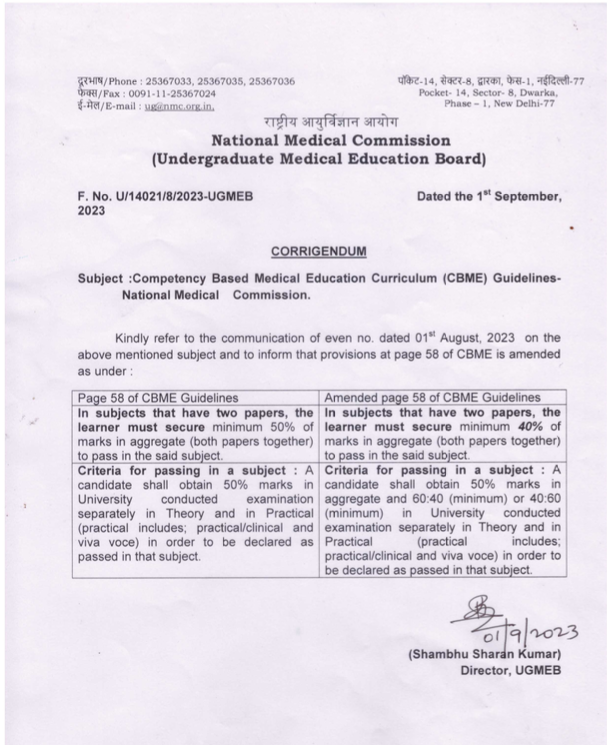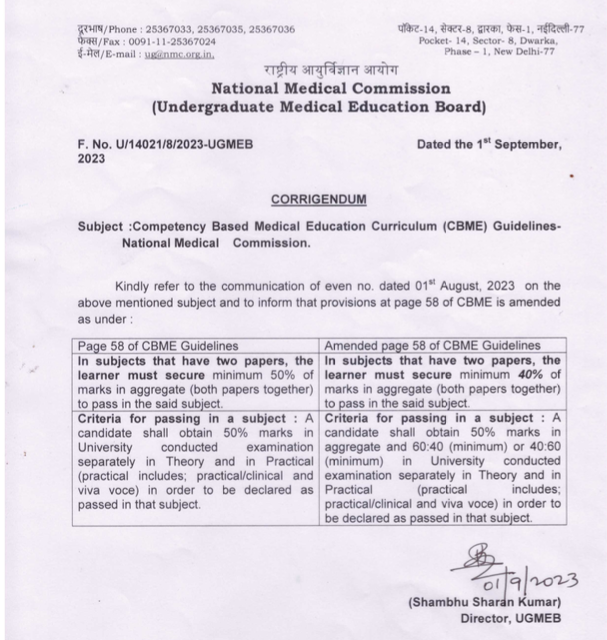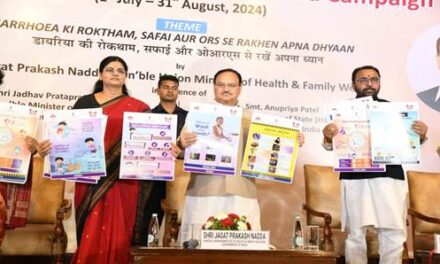
“National Medical Commission (NMC) Announces Revisions to Competency-Based Medical Education (CBME) Curriculum and MBBS Examination Passing Criteria”
The Undergraduate Medical Education Board (UGMEB) of the National Medical Commission (NMC) has introduced amendments to the Competency-Based Medical Education (CBME) Curriculum, including modifications to the passing criteria for the MBBS examination.
Prior to these changes, in order to pass subjects with two papers, students were required to secure a minimum of 50% of marks in aggregate for both papers together. However, the NMC has now reduced the minimum passing percentage to 40%, stating that “in subjects with two papers, learners must secure a minimum of 40% of marks in aggregate for both papers to pass in the respective subject.”
Furthermore, modifications have been implemented in the criteria for passing individual subjects. Previously, candidates were required to obtain 50% marks in the University-conducted examination separately in Theory and Practical (including practical/clinical and viva voce) to be declared as passed in that subject. With the amendment, NMC clarifies that candidates only need to achieve 50% marks in aggregate and a minimum of 60:40 or 40:60 in the University-conducted examination, separately in Theory and Practical (including practical/clinical and viva voce) to pass the subject.
The updated CBME curriculum for the MBBS course includes various objectives, goals, and competencies, aligning with the Indian Graduate Medical Training Programme, National Goals for Indian Medical Graduates, Institutional Goals, Goals for the Learner, and a Competency-Based Training Programme for Indian Medical Graduates. It also emphasizes the importance of continuous improvement of skills and knowledge for lifelong learning.
The curriculum outlines specific objectives, skills, and integration for various years and subjects of the MBBS course, including the distribution of teaching hours and the introduction of new teaching/learning elements such as the foundation course, early clinical exposure, electives, and the Attitude, Ethics, and Communication Module (AETCOM).
The MBBS course’s 4.5-year duration is divided into three phases, each with its own unique structure and objectives. The curriculum also addresses the assessment process, eligibility for professional examinations, and subject-wise marking formats for theory and practical examinations.
Additionally, the regulations cover the curriculum for the Family Adoption Programme, including targets, competencies, teaching methods, and assessment methods for students in their first, second, and third professional years. It also includes a log book for Family Adoption.
The regulations extend to guidelines for research facilities’ manpower requirements in medical colleges and admission procedures for students with “specified disabilities” under the Rights of Persons with Disabilities Act, 2016, with regard to MBBS course admissions.












